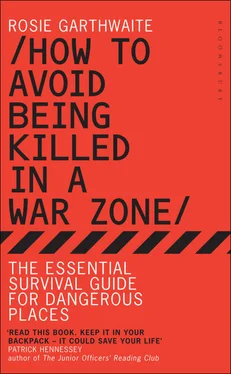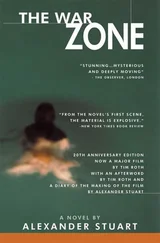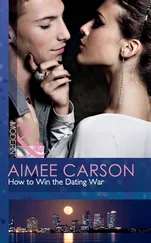‘I analysed my reaction over and over again. The fact was, I had trouble handling Aneta’s pain. It had now become mine. So I contacted CNN’s psychiatrist on call, who told me that it was a normal reaction to a traumatic event. And if the symptoms continued after three weeks, I should call him back.
‘Aneta’s story was nominated for prizes, including an Emmy. It felt nothing like the victories we achieved in the old days in the field, standing out in the cold rejoicing after transmitting exclusive pictures of a gun battle that our competitors couldn’t match. The Emmy awards ceremony, attended by rich executives and TV personalities in Manhattan, left me dazed and feeling guilty. Aneta had been forced to abandon her child to die, and here I was being fêted at one of the TV world’s most prestigious parties. Producers from New York studios were credited in our nomination, as if it was some kind of outstanding accomplishment to include in their nightly news broadcast the report we sent them about Aneta’s grief.
‘In New York I recounted Aneta’s story to an old friend. Her six-year-old son overheard us and asked his mother whether she would save him or his sister if it happened to them. The question, asked in a quiet Brooklyn townhouse, seemed meaningless and bizarre.
‘Some months after the siege, I went back to Beslan to do a follow-up report. Watching the town come to grips with its enormous grief helped me to heal my own wound. But it took a few more years for me to stop crying every time I told the story. I still have Aneta Godjieva’s mobile number in my phone and we talk occasionally, about once a year.
‘Although her hair is now completely grey, she looks good. And little Milena, the infant she saved that day she made her choice, has grown a lot.’
When the trauma experienced after leaving a war zone or disaster doesn’t resolve, it can become what doctors like to call a mental disorder. But thinking in advance about what might happen can make it worse. It’s a bit like taking magic mushrooms: if you worry about having a bad trip, this will increase the odds of that bad trip becoming a reality.
James Brandon
It was Jon Swain’sstark account of his time covering the wars in Vietnam and Cambodia from 1970 to 1975 that sent me catapulting into journalism. I wanted to see the world through his eyes, as depicted in his book River of Time . Within a month of my moving to Basra, he turned up and I was assigned by the Sunday Times to be his local fixer. I would have fixed anything for this man, but he knew when a story was a story, and he knew when to say no. He told me to trust my instincts and if I was going to be brave, to write brave journalism – don’t be stupid. Then one day I went to meet him in the hotel and he was gone. But his early support and advice have stayed with me ever since. He offers the following insights:
‘It was my godfather, who had won a Military Cross with the Eighth Army in North Africa, who warned me that the most dangerous time in war was nearly always the first few weeks. The newcomer was prone to inordinate risk-taking, convinced he was invincible and that the bullets splitting the air were always intended for someone else.
‘I have never forgotten his advice and even now, decades and many wars later, I try to apply it every time I go into a new combat zone. Each conflict is different and has its own lethal idiosyncrasies. Because you have become a veteran of one battle zone does not equip you to be competent in handling the risks of another.
‘The best example of this was the war in Cambodia between 1970 and 1975, when the press corps, of which I was a part, lost a higher percentage of its own than in any other conflict, and that includes Iraq and Afghanistan. In 1970, 26 foreign reporters and photographers were killed out of a tiny press corps of about 60. Between 1971 and the war’s end (with the Khmer Rouge capture of Phnom Penh) a further 12 foreign and local Cambodian journalists were killed, and a further 32 were killed or disappeared under the Khmer Rouge.
‘Quite a number of the 26 foreign reporters and photographers who were killed in the first months of 1970 were seasoned in conflict, having come from covering the war in Vietnam. But although Cambodia was just next door, the war was very different. In Vietnam we usually attached ourselves to an American or South Vietnamese military unit and travelled to military operations by helicopter. The helicopter was the taxi to the war, and the conflict was less fluid than in Cambodia, where there were no front lines.
‘In Cambodia the usual way to see the war was to go by car down roads that could change almost at any time from government to Khmer Rouge control. So timing and being aware of danger signs were critical to survival.
‘Of course, one was careful not to drive through pot-holes, which might conceal landmines. But sometimes that was unavoidable. It was important not to be the first vehicle down the road in the morning, when you were more likely to hit a mine or be ambushed. It was important to talk to local people and get a feel for what lay ahead.
‘And the golden rule was not to push it too hard, particularly if the peasants working in the fields on either side of the road were no longer there. This was a sure sign of a danger.
‘In addition, one learnt never to be on the road too late in the day. As the afternoons wore on, government troops would melt away, back to their outposts, and the insurgent Khmer Rouge and Vietnamese communists would move in.
‘In 1970, fresh from the big war in Vietnam, some reporters and photographers were perhaps ill equipped to judge these risks and were killed. On one black day – 31 May 1970 – television crews for CBS and NBC, with eight foreigners and one Cambodian, were killed on Route Three, 34 miles from Phnom Penh. The first CBS vehicle was hit by a rocket-propelled grenade, and one of the journalists was shot trying to get out of the burning car. The occupants in the second CBS car and the entire NBC crew were taken prisoner and later beaten and shot to death.
‘And so it went on.
‘For me, one of the lessons of these tragedies was that none of us is safe. In recent wars, like those in Iraq and Afghanistan, Western journalists have decided that they are being targeted in a way that never happened before, and that somehow the notion that their job as non-combatant observers should protect them has been violated. My experience in Cambodia meant I have never held to this view. I have always assumed that we could be targets for a whole variety of reasons, and have been prepared to act accordingly. You have to be prepared to accept that there is someone out there who wants to kill you.
‘I don’t think that having a white skin or being a journalist accords one any special protection or privileges in a war zone. But I have found that being a white man has on occasions saved my skin. In East Timor, renegade militia hesitated to shoot me and a colleague because they realized it was a big thing to kill a white man rather than one of their own. It gave us enough time to make a bolt for it and survive. Obviously, in Cambodia that did not apply. Indeed, on the day that Phnom Penh fell I and two other Western journalists were on the point of being executed by the Khmer Rouge, who had captured us for the very reason that we were Westerners. Our lives were saved by a Cambodian interpreter, Dith Pran – the story told in the movie The Killing Fields .
In Ethiopia, where I was kidnapped for three months, it also helped that I was a Westerner, I think. And there was a horrible occasion once in the Congo, when an angry Angolan major pushed an AK-47 rifle hard into my neck but hesitated to squeeze the trigger long enough for others to calm him down and allow me to get away.
Читать дальше




![Джонатан Димблби - Barbarossa - How Hitler Lost the War [calibre]](/books/385421/dzhonatan-dimblbi-barbarossa-how-hitler-lost-the-w-thumb.webp)







